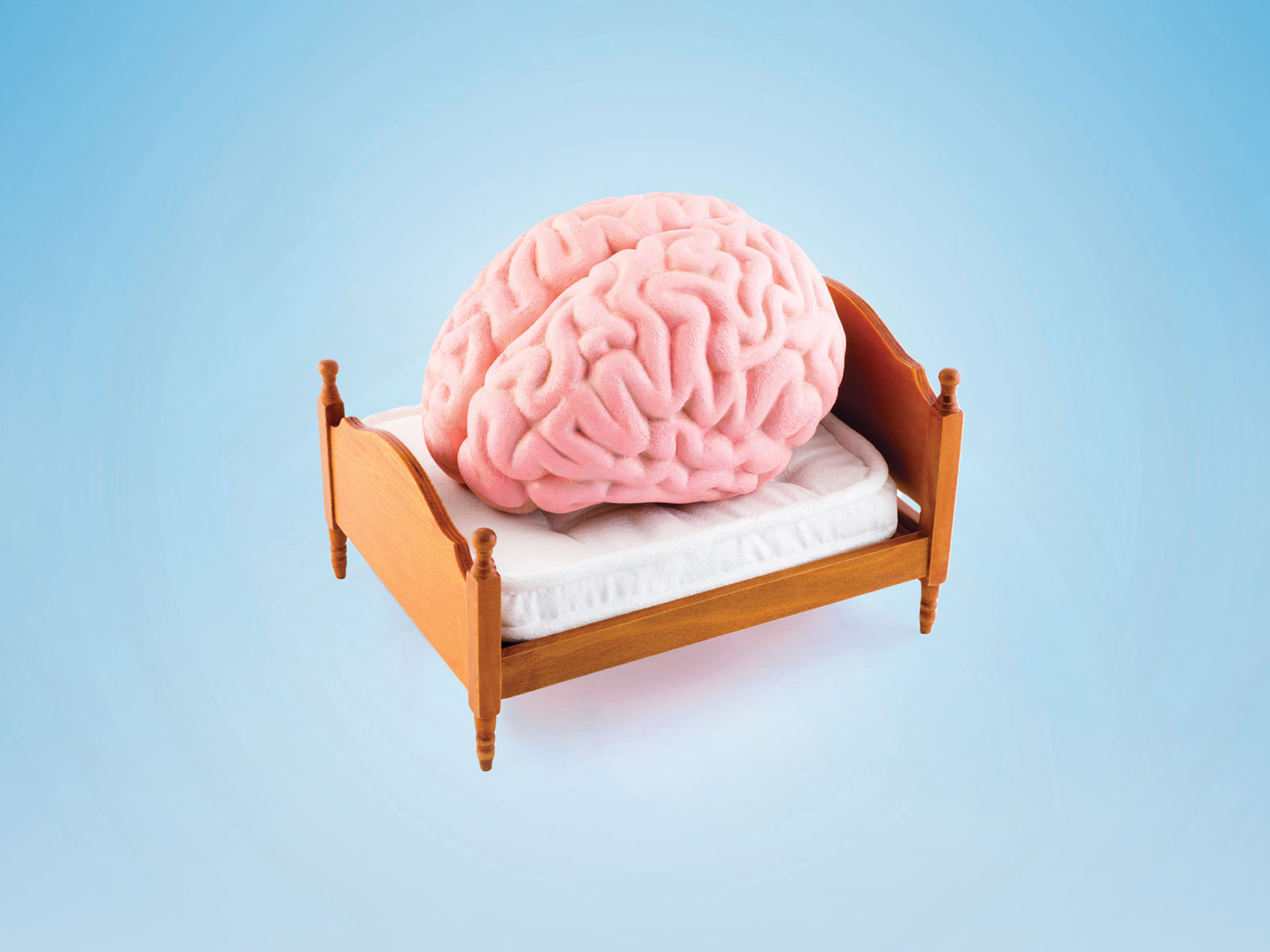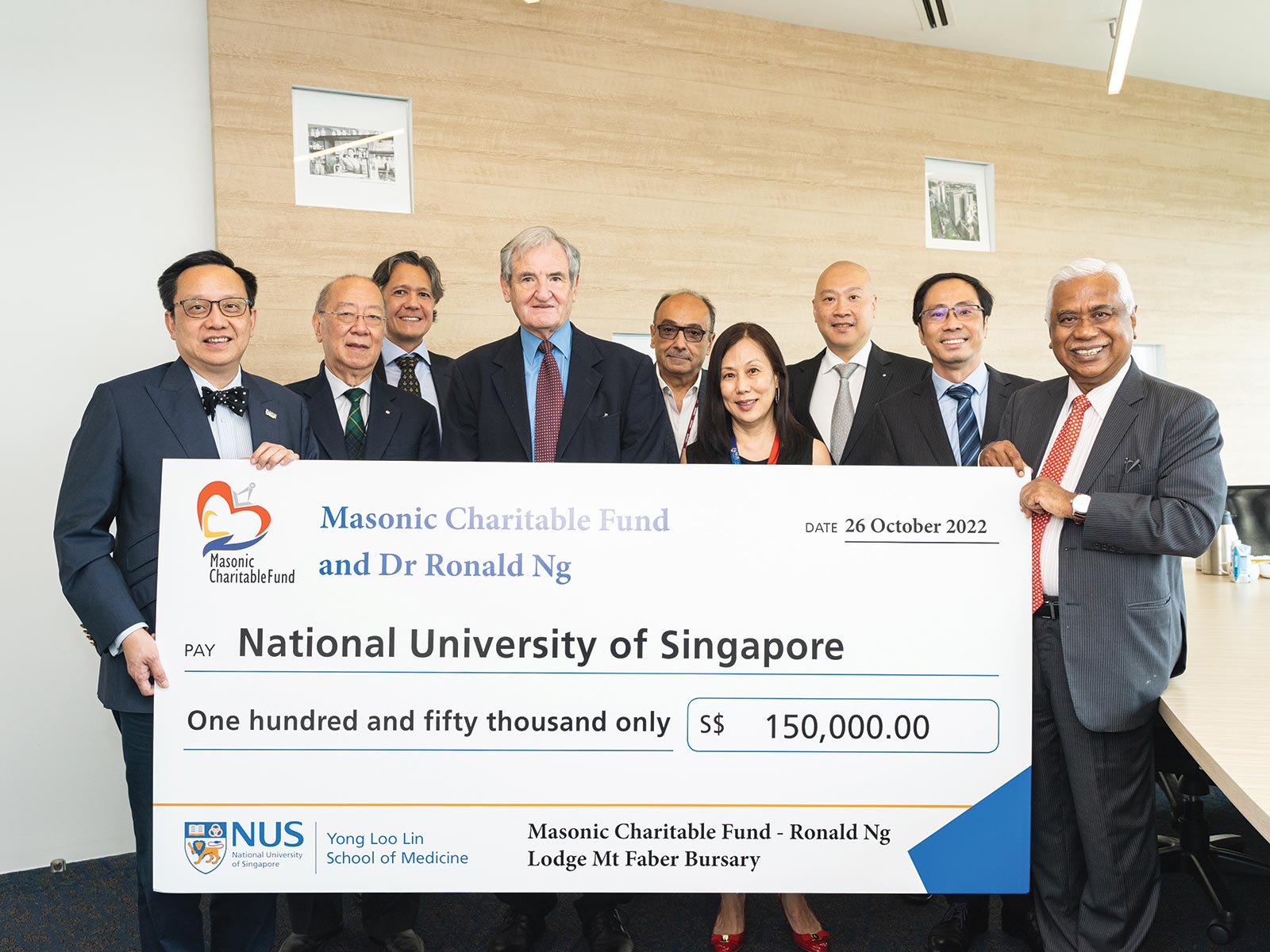
Issue 45
Jan 2023
DOSSIER
BY Lim Peiying, Senior Executive, Dean’s Office, NUS Medicine

Educators from NUS Medicine came together in person for the first time since 2019 for NUS Medicine Educators’ Day to celebrate the School’s milestones in medical education.
NUS Medicine’s Dean, Professor Chong Yap Seng, lauded the adaptability and resilience of educators in light of the COVID-19 pandemic, disruptions caused by Russia’s invasion of Ukraine and geopolitical tensions in Asia. “Medical education has to go beyond the teaching of Medicine in order to better equip our students for the future,” the Dean said. “With innovation being the currency of the future, doctors and scientists must continue to think beyond and pursue what seems impossible and attempt new things,” he added.
Keynote speaker Associate Professor Clement Tan, Director for the Division of Graduate Medical Studies (DGMS) first outlined the evolution of postgraduate medical education in Singapore. Before 1986, postgraduate medical students could only attain their masters by taking and passing exams offered by overseas colleges. Fast forward to today, NUS Medicine DGMS now offers a standalone Residency programme also known as the Accreditation of Postgraduate Medical Education, Singapore (APMES). He then described the various methods for assessing professional competence, from blueprinting to selecting appropriate test formats and sampling adequately. He opined that the increasing use of technology-enhanced learning would soon become a norm.
Assistant Professor Kathleen Agres from the Yong Siew Toh Conservatory of Music, the second keynote speaker, chronicled the use of music in healthcare and talked about how music-based complementary medicine can support health outcomes. Dr Agres showed a clip on the healing power of songs in helping dementia patients recall certain memories and how music can be used as an aid in the rehabilitation of Parkinson’s patients. She also highlighted the opportunity to leverage technology such as integrating music into real-time systems to treat different disorders.
The highlight of NUS Medicine’s Educators’ Day was the finals of the Medical Education Grand Innovation Challenge (MEGIC). The third edition of the annual event saw more NUS Medicine students participating. Eight finalist teams presented their ideas and work to a panel of judges—Associate Professor Lee Kooi Cheng, Director of the Centre for English Language Communication; Associate Professor Soo Yuen Jien, Director of the Centre for Development of Teaching and Learning and Associate Professor Seow Teck Keong, Deputy Director of the Centre for Development of Teaching and Learning.
First Prize
Team EnPointe emerged first prize winners, having impressed the judges with their innovative idea of using Artificial Intelligence (AI) and machine learning to analyse trainees’ performances in ultrasound-guided procedures. The agar-based phantom model developed by the team aims to provide an inexpensive, durable and safe method for medical students to practise and at the same time, receive real-time feedback from the AI model.
Team members: Dr Deborah Khoo Xian Li, Ms Flora Xu Wen Xin, Dr Amanda Choo Min Hui, Dr Ong Shao Jin and Dr Pamela Ting Li Ming.
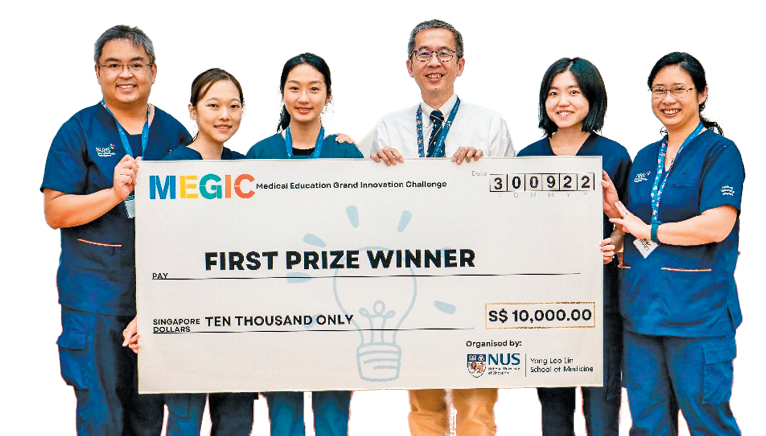
Second Prize
Team IlluminiSafe bagged the second prize for their development of IlluminiSafe, a non-toxic fluorescent indicator to simulate biological contamination. The team developed a water-soluble non-toxic indicator solution that is highly customisable and cost-effective to produce, compared to existing products.
Team members: Dr Ong Shao Jin, Mr Chia Koon Liang, Ms Lim Wen Yi Claire, Ms Liu Chunxi, Mr Matthew Scott Lau Wen Jiang, Dr Ang Wei Leng Bertrand, Dr Calvin Jianyi Koh, Dr Deborah Khoo, Dr Raj Kumar Menon, Dr Su Peijing, Dr Teo Li Lin Lycia, Adj A/Prof Ho Bow, A/Prof Quek Swee Tian, and Prof Paul Anantharajah Tambyah.
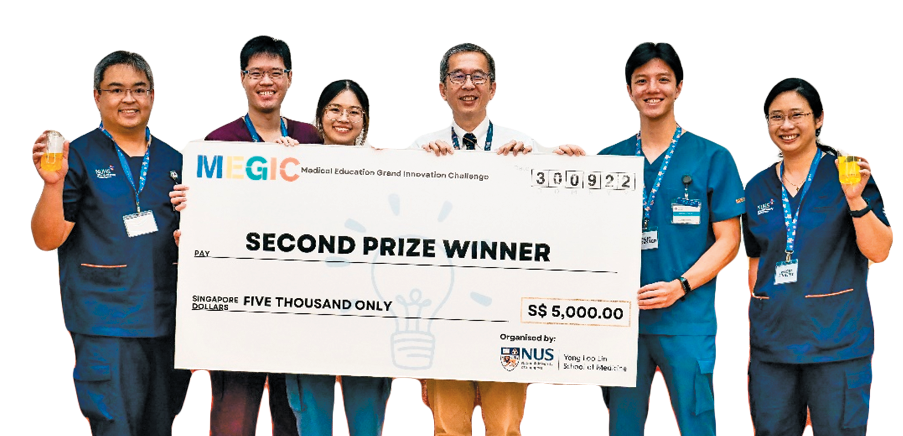
Third Prize
Team Guardians of the Galaxy won the third prize for their innovation of a unique team-based escape room experience to teach medicolegal concepts to students. The unique gamified curriculum, integrating the use of an escape room and flipped classroom concept, aims to provide students an immersive hands-on experience on the application of medical concepts taught in class.
Team members: Mr Chng Hao Sheng Alvin, Ms Chua Xin Ying, Anastasia, Mr Kaveen Kumar S/O Suriakumaran, Ms Ng Min Hui, Mr Wang Yu Hang, Ms Yang Yuxiu, Mr Yee Ting Hui, Dr Chua Joo Wei, Dr Tan Li Feng, and Dr Soo Shuenn Chiang.
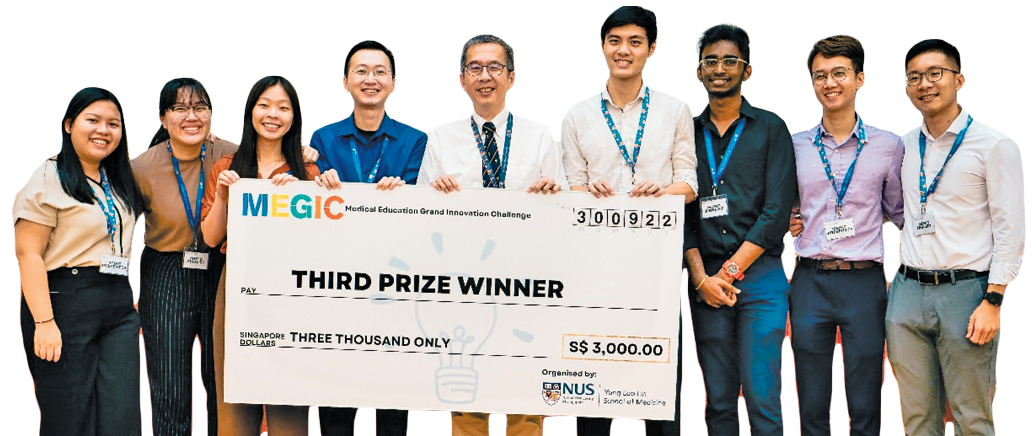
Best Video
Team VE-RA clinched the title for ‘Best Video’ with their idea of using Virtual Reality (VR) to provide a realistic environment for students to practice their anesthesia skills before moving on to real patients.
Team members: Dr Leong Kwong-Ming, Dr Quek Jinlin Terence, Dr Simon Tan Yong Sheng, and Dr Vera Lim Qin Yi.
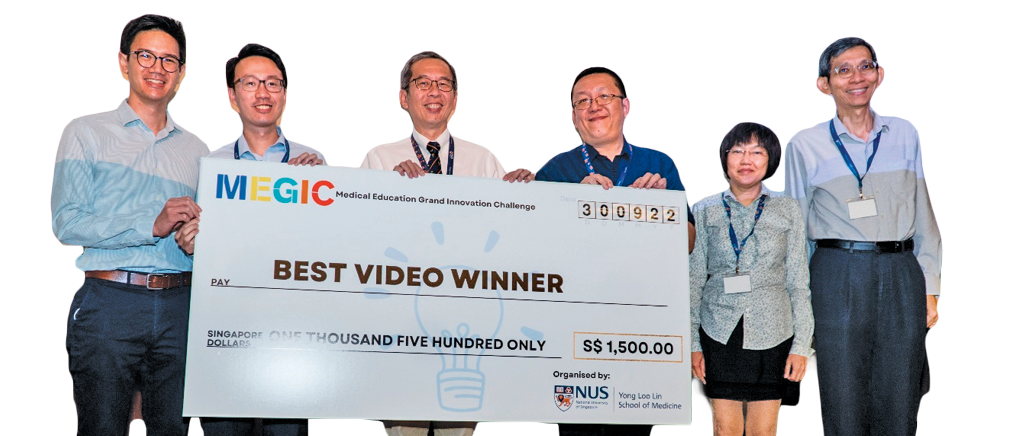
Click here to learn more about the MEGIC 2022 projects.
More from this issue
THE BANYAN TREE
Skills Demand for the Care Economy
SCIENCE OF LIFE
How Naps Can Be Beneficial for You
